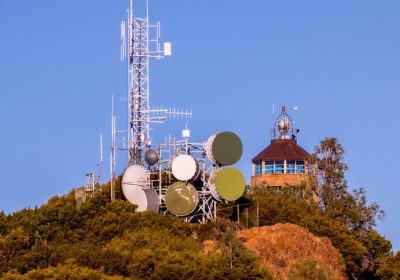A suppressed study comparing vaccinated and unvaccinated children raises serious questions about whether science is being silenced to protect the status quo.
Listen to the audio version of this article:
THE TOPLINE
- An unpublished Henry Ford Health System study found vaccinated children were significantly more likely to develop chronic conditions like asthma, autoimmune disease, and neurodevelopmental disorders.
- Researchers admitted they withheld the study from publication out of fear of professional backlash and job loss.
- The case highlights how powerful interests distort science, leaving major gaps in vaccine safety research and silencing open inquiry.
Science is meant to ask hard questions and follow the evidence wherever it leads. But what happens when research is mothballed not for any inherent flaws, but because its results challenge powerful interests, medical systems, or specific public health strategies?
Recently, attorney Aaron Siri testified before the U.S. Senate Committee on Homeland Security and Government Affairs. His testimony shines a light on an unpublished study from the Henry Ford Health System in Michigan that compared the health outcomes of vaccinated and unvaccinated children. The story of this study—and why it has never been published—tells us something troubling about the state of science in America.
What the Study Found
The Henry Ford study included 18,468 children born between 2000 and 2016, of whom 1,957 were completely unvaccinated. Inclusion criteria for the study explicitly excluded children with conditions such as chromosomal abnormalities, cerebral palsy, cystic fibrosis, spina bifida, congenital heart disease, or other brain, neurological, or congenital conditions present at or discovered after birth, to ensure a generally healthy cohort.
Using detailed health records and state immunization data, researchers compared chronic health outcomes such as asthma, autoimmune conditions, and neurodevelopmental disorders in the vaccinated and unvaccinated groups. Among their findings:
- Vaccinated children were 2.5 times more likely overall to develop a chronic health condition compared to unvaccinated children.
- For ADHD, learning disabilities, and tics, all recorded cases occurred in the vaccinated group, with none in the unvaccinated group.
- By age 10, only 43% of vaccinated children were free of chronic conditions, compared to 83% of unvaccinated children.
- Risks for vaccinated kids were sharply elevated for certain conditions, including:
- Asthma (4.25-fold increased risk)
- Autoimmune disease (4.79-fold)
- Neurodevelopmental disorders (5.53-fold)
- Atopic disease such as allergies and eczema (3.03-fold)
The study provides compelling data on the possible long-term tradeoffs of the childhood vaccine schedule. And yet, it never saw the light of day in the peer-reviewed literature.
Why It Wasn’t Published
Siri told the Senate committee that lead author Lois Lamerato, PhD, admitted she did not want to make doctors “uncomfortable,” while co-author Dr. Marcus Zervos feared he might lose his job if the study were published.
As Siri put it:
“Had this study showed that vaccinated children were healthier, I have no doubt it would have quickly and easily been published. It was not submitted for publication precisely because it found the opposite result.”
This is where the story becomes bigger than a single study.
A System Rigged Against Open Science
At ANH-USA, we are not here to proclaim “case closed” about the safety or efficacy of the childhood vaccine schedule. What we do insist on, however, is that science must be free to ask the hard questions—and to publish the answers, wherever they lead.

Unfortunately, vaccines are one of several subjects that have been declared off-limits for genuine scientific scrutiny. The result is a deep distortion of vaccine-related science. Researchers who pursue these questions risk their careers. Journals won’t publish the few studies that are conducted. Licensing boards may retaliate against doctors involved in the studies. We saw this a few years ago when Oregon pediatrician Paul Thomas, MD, and researcher James Lyons-Weiler, PhD, published a vaccinated/unvaccinated study in a peer-reviewed journal. Five days later, Dr. Thomas’ license was suspended. A month later, the study was retracted.
This is not how science is supposed to work.
The National Academies of Sciences, Engineering, and Medicine (NASEM) itself has admitted crucial data gaps when it comes to the safety of the vaccine schedule. In a 1994 report, NASEM acknowledged: “The lack of adequate data regarding many of the [vaccine-related] adverse events under study was of major concern to the committee.” Almost a decade later, in a 2013 report, NASEM authors wrote, “Key elements of the [vaccine] schedule … have not been systematically examined in research studies.”
Despite these clear and persistent data gaps, the government seems dead set against looking for any answers. Before he was made Health Secretary, Robert F. Kennedy Jr. and others urged HHS to produce placebo-controlled studies evaluating childhood vaccine safety. It never happened. In a 2017 letter to RFK Jr., then-NIH Director Dr. Francis Collins wrote: “We cannot condone studies that withhold vaccines from significant numbers of children, placing large segments of our population at risk for infectious diseases-some of which can be life-threatening.”
It is a telling position, given that the absence of clinical trials is used as the basis for denying Americans access to various forms of natural medicine, like homeopathy, compounded medicines, and truthful health claims about supplements. We’re told by the FDA that clinical trials are the gold standard of evidence, but then move the goalposts for vaccines—pharmaceutical interventions that are routinely given to millions of children every year.
Why This Matters
Issues like autism, asthma, autoimmune disease, and other chronic conditions are multi-factorial—influenced by genes, environment, nutrition, exposures, and medical interventions. If we silence entire lines of inquiry for political or ideological reasons, we lose the ability to see the full picture.
Good science is not about confirming what makes us comfortable. It is about asking the right questions, designing rigorous studies, and publishing the results—whether they confirm or challenge the prevailing narrative.
If science is allowed only when it serves the medico-industrial complex, then what we have is not science at all.
At ANH-USA, we will continue to fight for a system where science is not muzzled, where researchers can publish their findings without fear of losing their careers, and where citizens are trusted with the truth so they can make informed choices.
Because good science—like good law—cannot exist in the dark.
Please share this article widely in your networks.




In light of the ongoing discussions about genetic factors affecting congenital heart disease, how can genetic testing inform the treatment strategies for children diagnosed with conditions like DiGeorge Syndrome? I recently came across a valuable resource that dives deeper into this topic, titled “Navigating the Genetic Maze: A Practitioner’s Guide to Pediatric Cardiovascular Care” at https://cardiogenetics.org/navigating-the-genetic-maze-a-practitioners-guide-to-pediatric-cardiovascular-care. I’d love to hear your thoughts on this intersection of genetics and pediatric cardiology!
Truly objective science is what must be the gold standard. We have been lied to on account of big pharma setting their stage to make huge profits. It is time to say no to our government that makes it obvious that deep pockets has been the focus for decades, perhaps longer. The people have surpassed the breaking point. We, the people, will not stand for the tyranny, the lies, the crimes, and ultimately the deaths that are caused by such greed and lack of care for human life. Thank you!
Vaccines have ALWAYS been a racket! Starting with small pox!
google: Smallpox, bringing a dead disease back to life